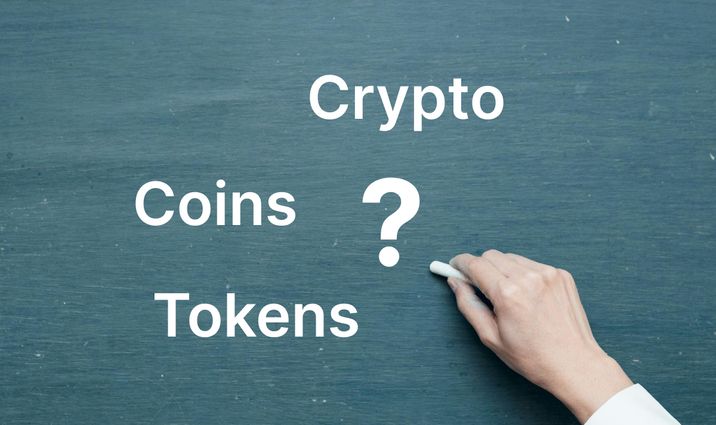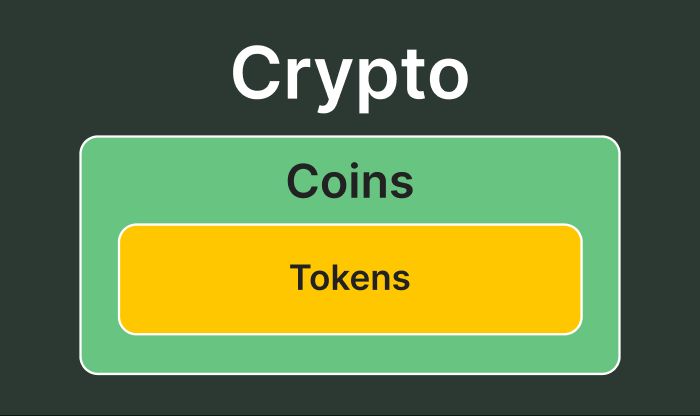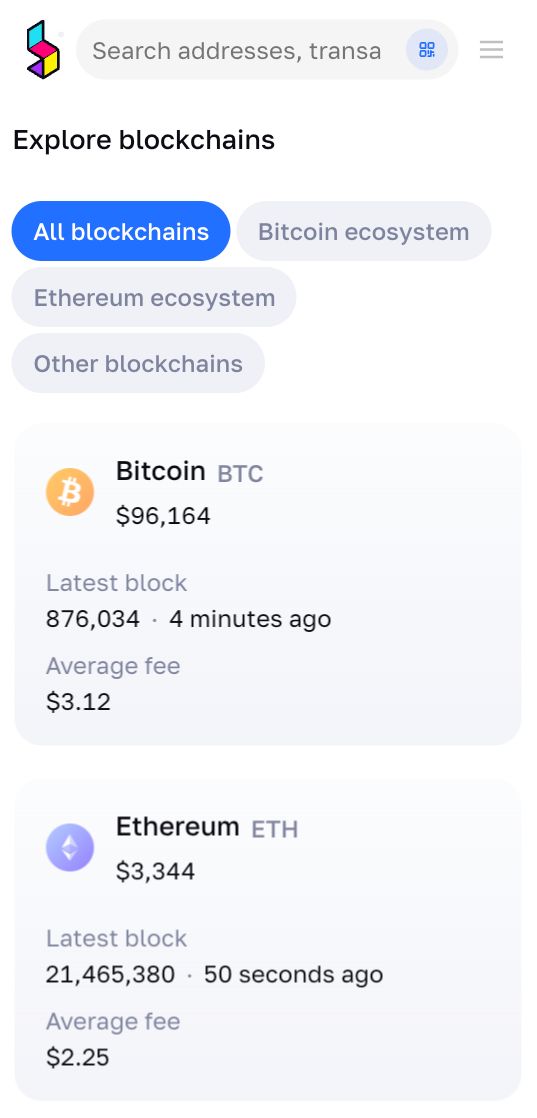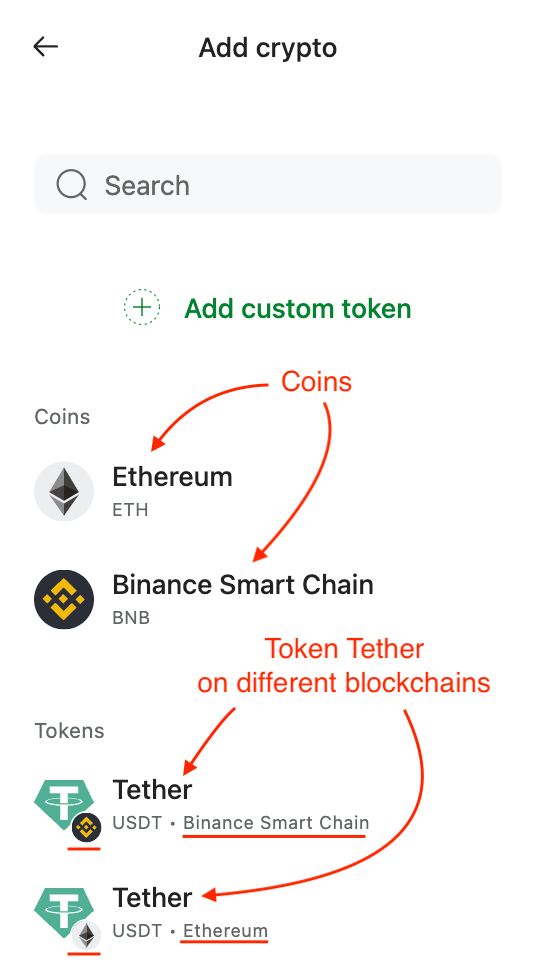The Difference Between Crypto, Coins, and Tokens

Understanding Crypto vs. Coins vs. Tokens
The cryptocurrency world often confuses newcomers with terms like "crypto," "coins," and "tokens." Here's a concise breakdown:
Crypto
The term "crypto" encompasses both coins and tokens, serving as a general term for all digital currencies and blockchain-based assets.

Coins
Coins operate on their own independent blockchain and have their own block explorers (e.g. Blockchair.com). The blockchain may or may not support tokens. If tokens are supported, the coins are usually used to cover token transactions. Examples include Bitcoin (BTC) and Ethereum (ETH).

Key Features:
- Independent Blockchain: Coins like BTC and ETH run on their own networks.
- Use Cases: Currency, store of value, transaction fees.
- Examples: Bitcoin, Ethereum, Dogecoin.
Tokens
Tokens are digital assets built on existing blockchains, such as Ethereum or Solana. To transfer tokens from user to user, you must pay a fee using your coin balance.

Key Features:
- Built on Blockchains: Created using smart contracts.
- Use Cases: Utility, governance, rewards, asset representation.
- Examples: Tether (USDT), Chainlink (LINK), Uniswap (UNI).
Key Differences
| Aspect | Coins | Tokens |
|---|---|---|
| Blockchain | Own blockchain | Existing blockchain |
| Use Cases | Investments, fees, value storage | Utility, governance, assets |
| Technology | Native to blockchain | Smart contracts |
Choosing Between Coins and Tokens
Coins are ideal for transactions and blockchain investment, while tokens suit users engaging with specific platforms or decentralized apps.
Conclusion
Coins form the foundation of blockchains as digital currencies. Tokens expand blockchain utility by powering applications and representing diverse assets. Understanding these differences helps in navigating the crypto space effectively.